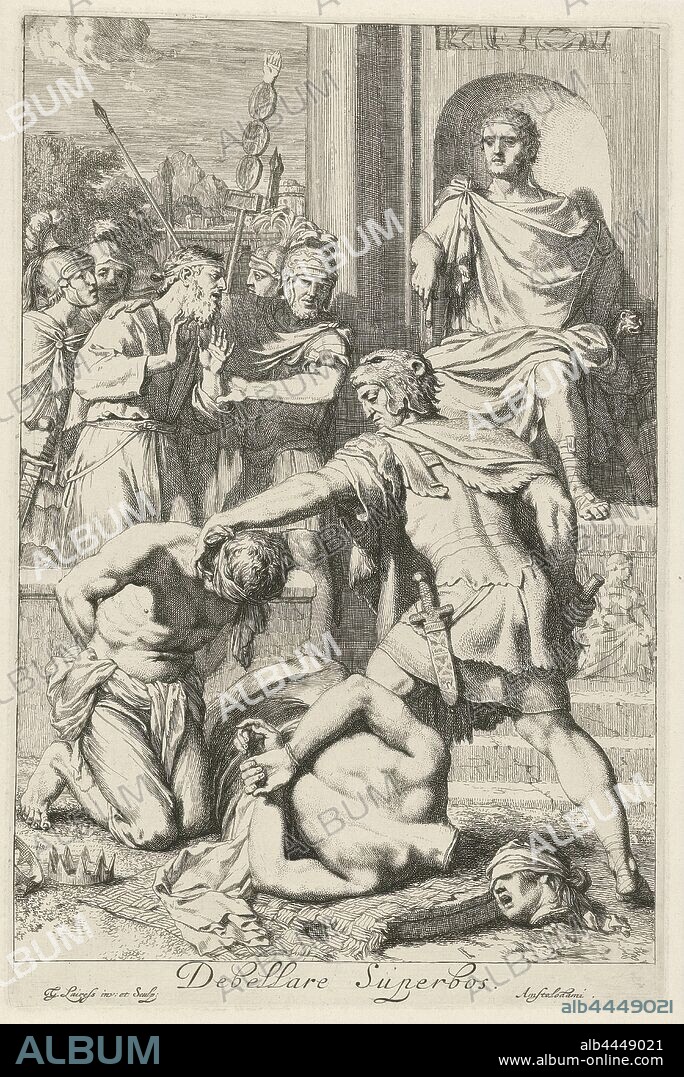alb4449021
Decapitation of two kings by order of a Roman emperor Debellare Superbos (title on object) Fundamental principle of Roman politics (series title), From his throne, a Roman emperor orders an executioner to behead a blindfolded king. The head of the second king is already chopped down on the ground. In addition to the emperor, a begging man is stopped by a number of soldiers. This print illustrates the second part of the fundamental principle of Roman politics, as incorporated by Vergilius: 'Parcere subiectis, sed debellare superbos' (Vergilius, Aenei 6 853). According to this principle, the subjects would be spared, but those who persisted in resisting were destroyed. Pendant of a print on the first part of this maxim., Violent death by beheading, emperor, Gerard de Lairesse (mentioned on object), Amsterdam, 1670, paper, etching, h 314 mm × w 209 mm.

|
Añadir a otro lightbox |
|
Añadir a otro lightbox |



¿Ya tienes cuenta? Iniciar sesión
¿No tienes cuenta? Regístrate
Compra esta imagen.
Selecciona el uso:

Descripción:
Ver traducción automática
Decapitation of two kings by order of a Roman emperor Debellare Superbos (title on object) Fundamental principle of Roman politics (series title), From his throne, a Roman emperor orders an executioner to behead a blindfolded king. The head of the second king is already chopped down on the ground. In addition to the emperor, a begging man is stopped by a number of soldiers. This print illustrates the second part of the fundamental principle of Roman politics, as incorporated by Vergilius: 'Parcere subiectis, sed debellare superbos' (Vergilius, Aenei 6 853). According to this principle, the subjects would be spared, but those who persisted in resisting were destroyed. Pendant of a print on the first part of this maxim., Violent death by beheading, emperor, Gerard de Lairesse (mentioned on object), Amsterdam, 1670, paper, etching, h 314 mm × w 209 mm
Crédito:
Album / quintlox
Autorizaciones:
Modelo: No - Propiedad: No
¿Preguntas relacionadas con los derechos?
¿Preguntas relacionadas con los derechos?
Tamaño imagen:
3856 x 5770 px | 63.7 MB
Tamaño impresión:
32.6 x 48.9 cm | 12.9 x 19.2 in (300 dpi)
 Pinterest
Pinterest Twitter
Twitter Facebook
Facebook Copiar enlace
Copiar enlace Email
Email
